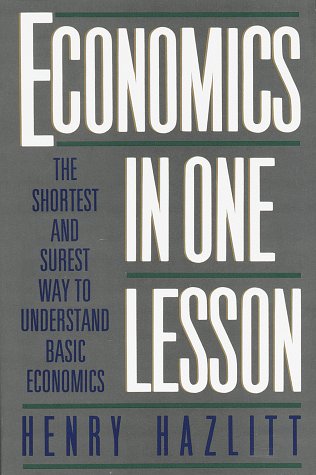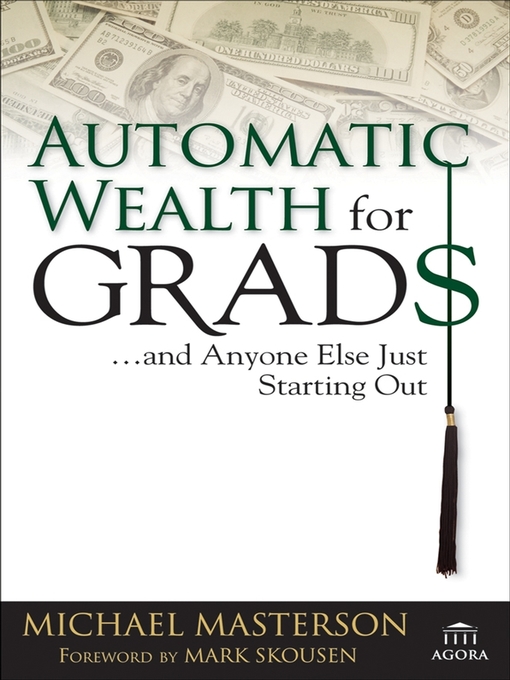1. In Defense of Global Capitalism by Johan Norberg.
 Anyone familiar with socialist politics knows of Naomi Klein, a left-wing Canadian author who argues that free-market capitalism is somehow responsible for all of the ills the world faces today. The only small problem is that her "novels" are entirely devoid of facts. Instead of substantiating claims that free enterprise in fact lowers living standards, she merely strings together terms that already have really negative perceptions and attempts to portray them as "capitalist": Iraq, oil, war, Bush, insurgency, Enron, shock & awe, Katrina, dirty water, Halliburton, greed, Bush, oil, etc. At no point does she actually demonstrate how economic freedom hurts the middle class or the poor. In no way is she able to prove that people under capitalism are worse off than before. And yet Klien's fiction is pervasive on college campuses.
Anyone familiar with socialist politics knows of Naomi Klein, a left-wing Canadian author who argues that free-market capitalism is somehow responsible for all of the ills the world faces today. The only small problem is that her "novels" are entirely devoid of facts. Instead of substantiating claims that free enterprise in fact lowers living standards, she merely strings together terms that already have really negative perceptions and attempts to portray them as "capitalist": Iraq, oil, war, Bush, insurgency, Enron, shock & awe, Katrina, dirty water, Halliburton, greed, Bush, oil, etc. At no point does she actually demonstrate how economic freedom hurts the middle class or the poor. In no way is she able to prove that people under capitalism are worse off than before. And yet Klien's fiction is pervasive on college campuses.Norberg, a young Swedish economist and former socialist, authors Defense as a response to Klien's irratic rantings. Norberg presents his arguments in a both eloquent and fact-laden form. Virtually every sentence contains citations to respectable, non-partisan sources lending credence to Norberg's claims. He successfully illustrates how the adoption of free enterprise has brought millions out of poverty in China, made the environment cleaner in Latin America, put more food on the table in Russia, and raised health and living standards in nearly every corner of the globe. Norberg serves as this generation's Adam Smith, and In Defense is his Wealth of Nations. I would recommend this short treatise to any 18-year old heading off to college this coming fall.
2. Economics in One Lesson by Henry Hazlitt.
 This classic, first published in the 1940s following the Second World War, will have a profound impact on how you view economics. If you're new to conservative or libertarian economic philosophy, this book is a fantastic starting point for education on fundamental issues. Even if you've been a conservative for a long time, it still serves as a great foundation to come back to.
This classic, first published in the 1940s following the Second World War, will have a profound impact on how you view economics. If you're new to conservative or libertarian economic philosophy, this book is a fantastic starting point for education on fundamental issues. Even if you've been a conservative for a long time, it still serves as a great foundation to come back to.What's fascinating is just how extremely out of favor Hazlitt's views were at the time he wrote Economics and how they remained that way when he published its final edition in the 1970s. In just over 200 pages, the book concisely covers a host of topics, ranging from the broken window fallacy, the function of prices, the role of profits, the destructive nature of inflation and subsidies, and the virtues of saving. What is equally amazing is how true Hazlitt's points remain today in the face of ever-increasing calls for new government mandates, price controls, subsidies, and trade barriers. In this way, Hazlitt's treatise serves not only as an economics lesson, but as a history lesson, educating readers that we're doomed to repeat the malaise of the past if we don't right course.
3. Automatic Wealth For Grads by Michael Masterson.
 I recently watched Obama give a commencement address advising recent grads to forestall making money at six-figure corporate jobs and instead to actually "help society" by volunteering for community groups. But we all know that the only real way to help society is to go out and make as much money as possible, which is why I've recommended this next selection.
I recently watched Obama give a commencement address advising recent grads to forestall making money at six-figure corporate jobs and instead to actually "help society" by volunteering for community groups. But we all know that the only real way to help society is to go out and make as much money as possible, which is why I've recommended this next selection.A departure from the ideological titles, Automatic Wealth is a great read for those of us just now entering the job market. The book discusses investing in real estate or equities and boosting your annual income. At the heart of Masterson's advice is saving 15% of gross income per year, which, at a respectable rate of return, would make it impossible to not be a millionaire upon retirement. To many recent grads, saving 15% will seem like an impossible feat, but Masterson specifically spells out ways this goal can be achieved on an annual income as little as $30,000. I think recent grads would be far better served receiving this book at their commencements instead of tired, old class-warfare rhetorics from politicians.
4. How the West Grew Rich: The Economic Transformation of the Industrial World by Nathan Rosenberg and L.E. Birdzell, Jr.
 Many academics in the humanities departments throughout the country argue that Western Europe and America unfairly became rich because we colonized the Third World, enslaved millions, or because white people are just somehow naturally "smarter."
Many academics in the humanities departments throughout the country argue that Western Europe and America unfairly became rich because we colonized the Third World, enslaved millions, or because white people are just somehow naturally "smarter."Rosenberg, a history professor at Standford, and Birdzell, an attorney and legal scholar, emphatically refute such arguments. They demonstrate how the vast majority of the West's growth came after slavery and colonization were abolished. Instead, they point to the existence of legal institutions and cultural norms that have long been favorable to growth, voluntary exchange, and capital formation, including the common law legal system, the lack of centralized authority during the medieval period, the Protestant Work Ethic, and a reliance on markets to coordinate production.
In closing, I think most of ya'll can tell I've already read these books. And the truth is, I have, numerous times, cover to cover. But that shouldn't stop you from doing the same. For my money, these titles should sit right next to that worn-out copy of The Lords of Discipline.
1 comment:
The Future of Freedom
by Fareed Zakaria
My #1 rec
Post a Comment